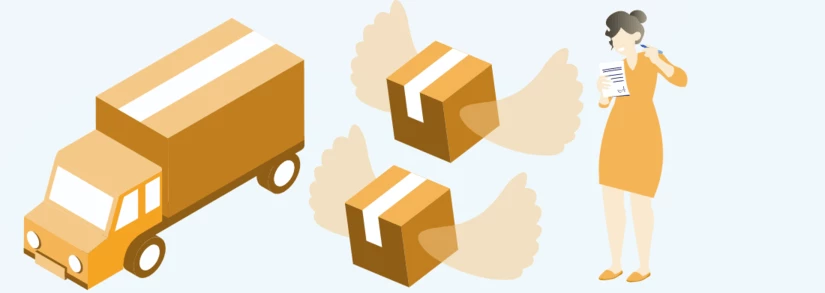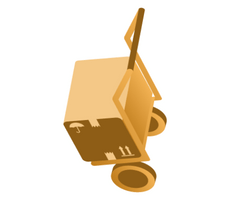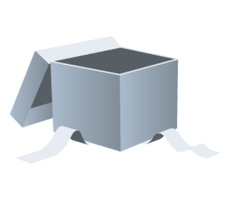
Moving home?
Sort out all your utilties!

Packing for moving house is stressful enough at the best of times. With decluttering and organisation, getting all your belongings and furniture sorted and ready for moving day involves a lot of thinking and doing. To help you navigate through everything, we’ve listed about top 10 packing tips for moving house as well as a guide for helping you prepare for your move!

Moving House? Set up All Your Utilities At Once!
Set up your energy, broadband and waste in one hassle-free call!

Need To Sort Out Your Utilities for Your Move?
We're currently closed but please leave us your number and we'll give you a free call as soon as we're open!
If there’s one tried and tested method of reducing the stress of packing for moving house, it’s planning ahead. Preparing everything beforehand and knowing exactly what you need and when you need it is key in making sure you don’t get overwhelmed with all the stuff you have moved. You never know exactly how much stuff you have, and if you leave it too late, it can seem endless when it comes to packing it away.
Ideally, you want to start planning your move at least two months in advance of your actual moving date. Having a defined date for moving should really be the first task on your moving home checklist since you’ll be able to organise everything to fit in with that date.
When it comes to actually packing, you should start looking around for supplies around the same time, but should begin putting your belongings into boxes around a month before you leave. You should at the very least be actively sorting out your belongings in essential and non-essential piles.
Making sure you have strong and sturdy packing materials that will last your move is essential for making your belongings secure. Especially if you have a lot of antiques and valuables, you want to ensure that they won’t get damaged in transit.
Home removal companies will usually provide packing materials at an extra cost, but to save money on your moving costs you should gather up some of the supplies yourself. Here’s a list of all the essential packing supplies you should get before you begin sorting everything out:
What size moving boxes should I get? You should really avoid getting larger moving boxes since they’re much more difficult to manage and take up a lot of space. Try and get standard 45cm x 45cm x 51.5cm boxes so you can pack everything away securely. For clothes, consider getting wardrobe boxes to pack everything away neatly!
Read More in Our Moving Boxes Guide!
Labelling your moving boxes correctly is very important so you know exactly where all your belongings are. This is good forward thinking as well since it will make unpacking so much easier when it comes to unloading.
Use the sticky labels to clearly mark the boxes you have for each room. Make sure to label your boxes with a specific label so you know what’s in the box, for example, if a kitchen box has glasses in it, add ‘glasses’ to the box. If your boxes contain valuables or hazardous chemicals, you should make sure the box is marked with a visible label.
To make sure your packing experience is the best it possibly can be, we’ve put together our list of packing tips for moving house. This is by no means an exhaustive list of packing tips for moving house, but it covers the essentials in order to make the experience a lot smoother.
Decluttering is a task that comes after a lot of procrastination, but when you’re moving home it’s unavoidable. Fortunately, there are lots of ways you can declutter, and you should look to start early on before you move. Here are some ways you can get rid your unwanted stuff:
Sometimes you might have to make an emergency move and there’s no time to plan in advance. In this case, you want to make sure you can pack everything away quickly so you can clear out as fast as you can. In this case, the packing tips for moving house are slightly different.

Moving House? Set up All Your Utilities At Once!
Set up your energy, broadband and waste in one hassle-free call!

Need To Sort Out Your Utilities for Your Move?
We're currently closed but please leave us your number and we'll give you a free call as soon as we're open!
When it comes to packing for moving house, you want to make sure you’ve got each room covered. Since every room has its own specific stuff, it’s important to remember some room-specific rules when it comes to packing your things away. This is very important as it will help you make your packing a lot simpler.
Deciding which room to pack first is tricky since you might want to make sure you get the larger rooms done first and then move onto the smaller ones. However, you could find that you end up packing up the kitchen much sooner than you need to and you’ll be spending a lot of time taking things back out to use them.
You should start by packing up those rooms that are rarely used, such as:
Starting with these and getting them out the way soon will mean you’ll only need to load them up on the moving van and you won’t have to worry too much about them after they’re packed.
Packing up the moving van is usually the final step when it comes to the whole moving process. Make sure you load the van correctly and let the movers help you with packing it up. make sure you load the moving van according to what you’ll need to take out first. As a general rule, you’ll want to load the heavier objects first and then your lighter boxes.
When it comes time to finally unload and unpack everything you’ve brought with you, if you’ve done everything in the right order, unpacking should be really straightforward. Since you would have done all the hard work beforehand, it shouldn’t be any problem to simply move your boxes into your new house and put them in the right room.
When you’ve finished moving, make sure you:
Find out more about our offers from energy, broadband and waste collection providers!
The services and products mentioned on this website may only represent a small selection of the options available to you. Selectra encourages you to carry out your own research and seek advice if necessary before making any decisions. We may receive commission from selected partner providers on sales of some products and/or services mentioned within this website. Our website is free to use, and the commission we receive does not affect our opinion or the information we provide.
Moving Home in 2026?







